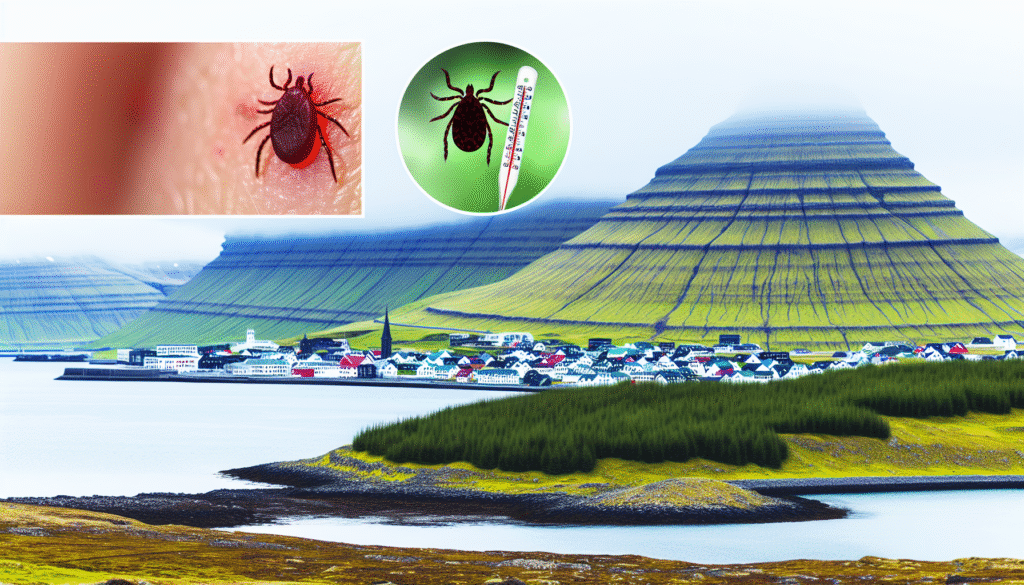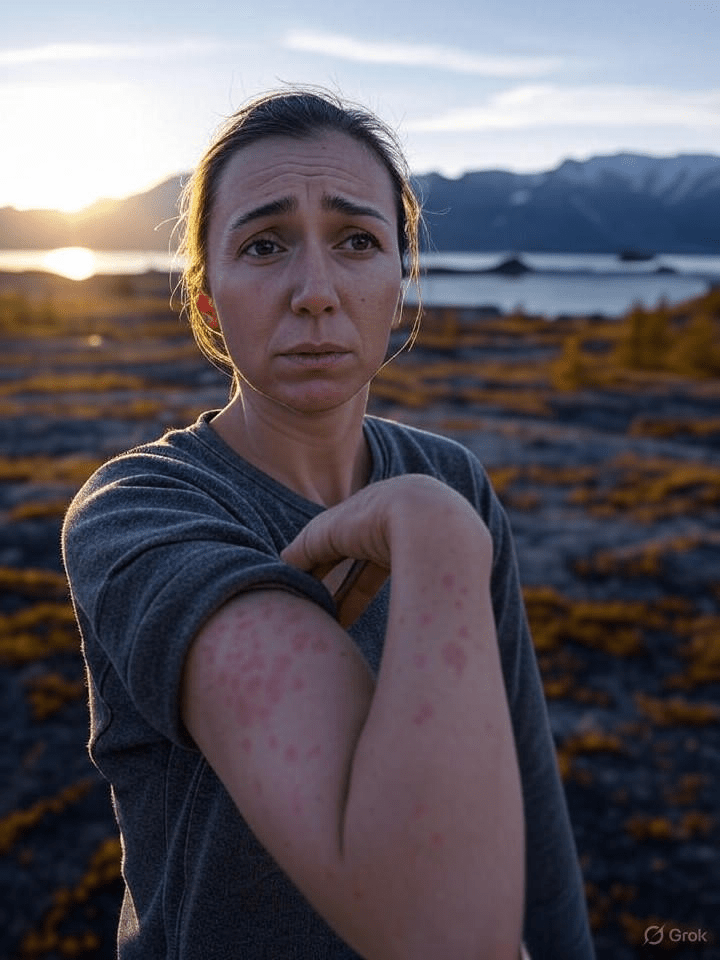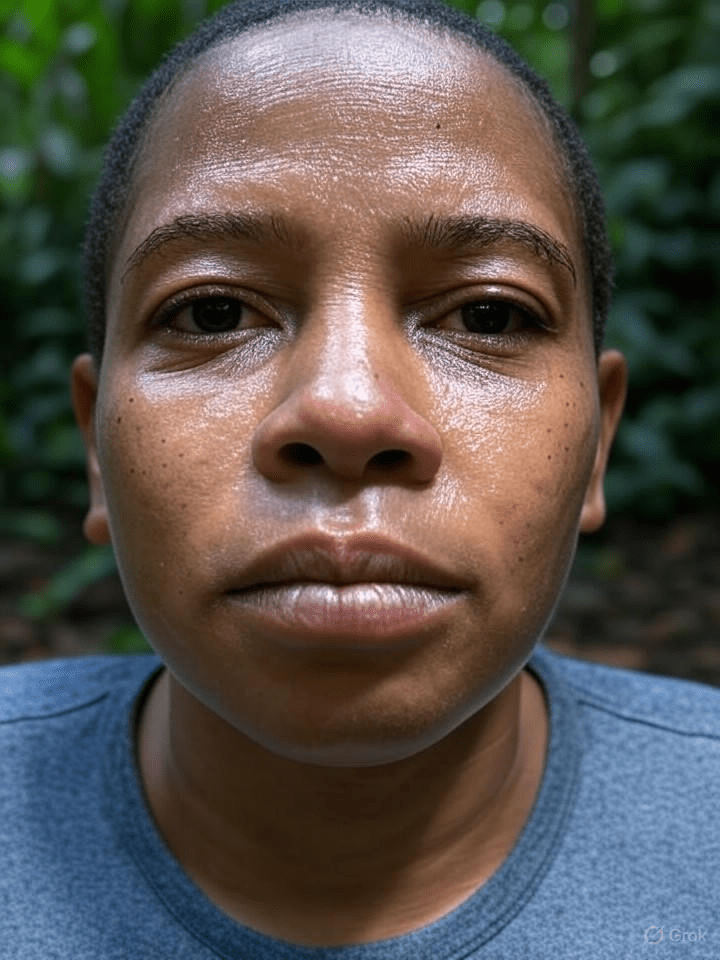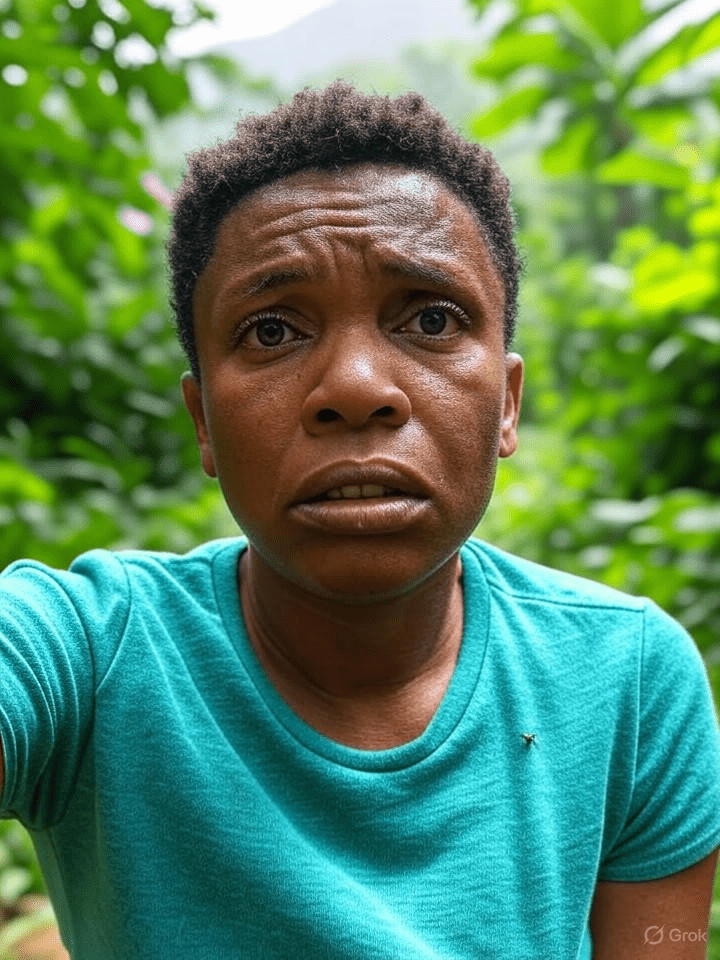Uncovering Lyme Disease in the Faroe Islands: Challenges and Emerging Research

This article examines Lyme disease as an emerging health concern in the Faroe Islands, a remote North Atlantic archipelago. It highlights challenges in detection and management due to diagnostic limitations, lack of local research, and environmental factors like climate change. Recommendations include enhancing surveillance, diagnostics, and public awareness.
Lyme Disease in Greenland: Exploring the Emergence of Tick-Borne Illness in the Arctic

This article explores the potential emergence of Lyme disease in Greenland, driven by climate change expanding tick vectors’ range into the Arctic. It examines environmental conditions, reviews tick expansion literature, and discusses public health implications, offering recommendations for surveillance, prevention, and research in this warming region.
Lyme Disease on the Rise: Understanding the Growing Threat in Canada

**Excerpt/Summary (41 words):**
Lyme disease, a tick-borne illness caused by *Borrelia burgdorferi*, is a growing public health concern in Canada, with cases rising to 5,239 in 2024. Driven by climate change and tick population expansion, it poses diagnostic and treatment challenges requiring urgent, coordinated strategies.
Unraveling Lyme-like Syndrome in Brazil: A Unique Tick-Borne Challenge

**Excerpt/Summary:**
Lyme-like syndrome in Brazil, resembling Lyme disease but with unique Borrelia species and Amblyomma tick vectors, poses a public health challenge in tropical regions. This article examines its clinical, ecological, and diagnostic complexities, highlighting environmental influences and advocating for tailored surveillance, diagnostics, and interdisciplinary solutions.
Exploring the Potential Spread of Lyme Disease in Fiji: Challenges and Implications for Tropical Regions

**Excerpt/Summary (38 words):**
This article examines the potential spread of Lyme disease to Fiji, highlighting climate change, vector presence, and public health challenges. It emphasizes surveillance gaps and recommends enhanced monitoring, diagnostics, and regional collaboration to mitigate risks in tropical regions.
Lyme Disease in New Zealand: Unraveling the Mystery of a Contested Illness

This article explores the contested nature of Lyme disease in New Zealand, where local transmission is unconfirmed due to the absence of competent tick vectors. It examines scientific uncertainties, diagnostic challenges, patient experiences, and policy issues, advocating for improved surveillance, research, and support for affected individuals.
Tackling Tuberculosis in South Africa: Challenges and Innovations in Treatment Access

**Excerpt/Summary (43 words):**
Tuberculosis (TB) poses a major public health challenge in South Africa, exacerbated by healthcare access barriers, socioeconomic disparities, and multi-drug resistant TB (MDR-TB). This article explores systemic issues, innovative diagnostics like Xpert MTB/RIF, and recommends policy reforms and integrated healthcare strategies to improve outcomes.
Unraveling the Mystery: Exploring the Presence of Lyme Disease in Australia

This article examines the controversial status of Lyme disease in Australia, a tick-borne illness prevalent in the Northern Hemisphere. Despite no conclusive evidence of locally acquired cases, persistent Lyme-like symptoms among Australians highlight the need for enhanced research, better diagnostics, and improved public health strategies.
Lyme Disease in Jamaica: Exploring Potential Risks and Awareness in the Caribbean

**Excerpt/Summary:**
This article explores the potential risk of Lyme disease in Jamaica and the Caribbean, despite no confirmed cases. It highlights ecological, socioeconomic, and health system challenges, emphasizing the need for enhanced surveillance, public education, and diagnostic capacity to address possible future risks due to tick vectors and global travel.
Lyme Disease in Sweden: Emerging Challenges and Public Health Responses

**Excerpt/Summary (39 words):**
This article explores Lyme disease in Sweden, highlighting its rising incidence, diagnostic challenges, and climate change impacts. It discusses epidemiology, public health responses, and recommends enhanced surveillance, awareness, and integrated strategies to address this growing tick-borne threat.
